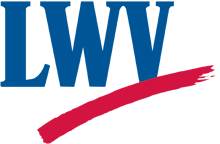 A caucus to inform Leagues for advocacy on Senate Bill 32 and Senate Bill 350, now in the California Legislature, will be held at the League of Women Voters California Convention, Saturday, May 16, 2015, 7:30-8:30 AM, in the Del Mar Room.
A caucus to inform Leagues for advocacy on Senate Bill 32 and Senate Bill 350, now in the California Legislature, will be held at the League of Women Voters California Convention, Saturday, May 16, 2015, 7:30-8:30 AM, in the Del Mar Room.
SB 32 and SB 350
Two bills now in the California Legislature are critical to our continued efforts to mitigate climate change. California’s ground-breaking climate change legislation – AB 32 and the Renewable Portfolios Standard – only extend to 2020. SB 32 and SB 350, recently introduced, would increase those goals and extend them to 2050 and 2030 respectively. The LWV-California supports SB 32 and supports in concept SB 350. The concept of the bills was described by Governor Brown in his State of the State address on January 5, 2015.
SB 32 The California Global Warming Solutions Act of 2006 – AB 32 – required California to reduce its GHG emissions to 1990 levels by 2020. SB 32 would continue the trend, requiring California to reach emissions 80% below the 1990 level by 2050, with intermediate targets for 2030 and 2040.
SB 350 California’s Renewable Portfolio Standard (RPS) was established in 2002 under SB 1078, accelerated in 2006 under SB 107 and expanded in 2011 under SB 2. The RPS requires investor-owned utilities, electric service providers, and community choice aggregators to increase procurement of energy from renewable sources to 33% by 2020. SB 350 will extend that trend and add some new targets. SB 350 would implement new Golden State Standards, “50-50-50” benchmarks. These are:
- Increase renewables in California’s electricity portfolio from 33% to 50% by 2030
- Reduce petroleum use by 50% by 2030
- Increase energy efficiency in buildings by 50% by 2030
The passage of SB 32 and SB 350 is not guaranteed. Proponents argue the bills are essential to continue progress toward climate change mitigation. Opponents fear that the bills will hurt our economy. In fact, our economy has not seen a negative impact with the implementation of AB 32. And, according to the Environmental Defense Fund, since California announced the cap on carbon in 2006, more than $12 billion in clean energy venture capital has come into the state, a figure higher than all other states combined.
An additional argument against SB 350 is that achieving 50% reduction in petroleum use is not doable, but models indicate that is not the case, especially when coupled with the decreasing cap (of cap and trade), which will reduce fuel demands. Further work on the energy efficiency and petroleum use sections of SB 350 are being worked by the authors.
The LWV-California supports SB 32 and supports in concept SB 350. Both bills will be monitored as they move through the Legislature.
You can read the support letter for SB 350 at SB 350 Sign On-Final S-EU&C 3_30 and for SB 32 at SB 32 Sign on Support Final S-EQ 3_30.


